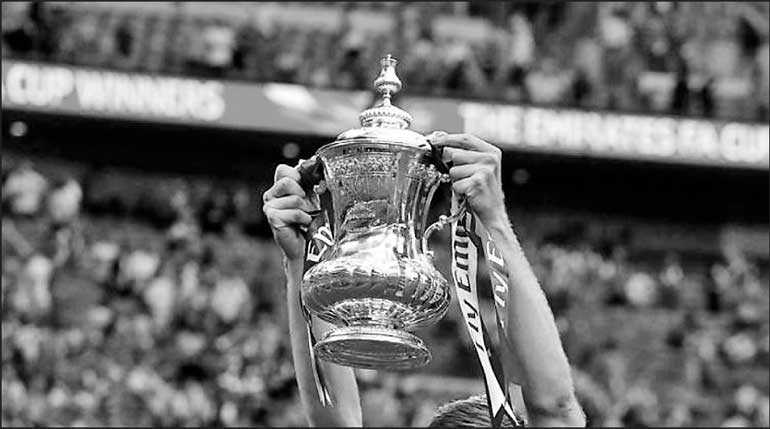Monday Feb 23, 2026
Monday Feb 23, 2026
Saturday, 5 January 2019 00:00 - - {{hitsCtrl.values.hits}}

Southampton’s triumph as a second division club in 1976 when they toppled Manchester United at Wembley remains the greatest day in the club’s history
LONDON (Reuters): One of the traditional highlights of the British sporting year takes place this weekend when the big clubs join the FA Cup in the third round but, with every passing season, its famed “romance” appears the preserve of die-hard traditionalists.
Premier League and Championship clubs join the lower league survivors over four days of action, starting with Tranmere Rovers against Tottenham Hotspur on Friday.
For most managers and owners, if not players and fans, the oldest football competition in the world has become little more than a distraction from their league aspirations and it is now routine to see reserve teams take to the field.
Southampton’s triumph as a second division club in 1976 when they toppled Manchester United at Wembley remains the greatest day in the club’s history. Yet, battling against possible relegation from the Premier League, new coach Ralph Hasenhuettl would probably consider it a blessing if they were to lose at Championship side Derby County.
Crystal Palace against Grimsby has the look of a classic giant-killing but if the League Two side were to pull it off, Palace’s owners and coach Roy Hodgson would no doubt get over the embarrassment quite quickly and be grateful that they could focus all their energies on staying up.
The same rationale applies to half the sides in the Championship, where the promised land of the Premier League remains tantalisingly close and where a run of Cup games, with potential replays, is absolutely the last thing they want in an already-gruelling campaign.
Spare a thought too for Brighton and Bournemouth, clubs who have spent most of their existence in the lower leagues highlighted with memorable Cup moments.
Drifting season
With both teams desperate to stay in the Premier League, they face each other in the FA Cup on Saturday. While neither manager will admit to wanting to lose the game, they will almost certainly pick a team that will show they do not particularly want to win.
For some clubs, however, the FA Cup already looks like not only their only chance of silverware but their only real focus to a drifting season.
Everton, who ended a 14-year barren spell by winning the Cup in 1984, are secure in the upper-mid table and look destined to stay there, neither pushing the top six but equally in no danger of relegation.
A good Cup run could really lift the mood around Goodison Park – something that may yet be desperately needed should Liverpool go on to win the Premier League – but it would still be a surprise if coach Marco Silva put out his strongest side against League Two leaders Lincoln City.
Minor League Woking pulled off one of the all-time shocks when they beat West Bromwich Albion 4-2 away in 1991 when their hat-trick hero Tim Buzaglo was famously carried off the pitch shoulder high – by the Albion fans.
Would it feel the same if they beat a predominantly reserve Watford team this week?
Paradoxically though, despite its diminishing appeal since the establishment of the Premier League and Champions League, the Cup has become even more dominated by the big clubs than when it was something they threw everything at.
When Chelsea beat Manchester United at Wembley last May it meant that they and Arsenal had featured in a remarkable 17 of the last 26 finals. In that time, they have won the trophy 15 times between them, with Arsenal winning eight titles while Chelsea emerged victorious on seven occasions.
With United, Liverpool, Everton and Manchester City also successful, the only “outsider” triumphs in the Premier League era have been Portsmouth in 2008 and Wigan in 2013.